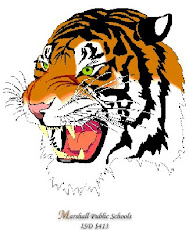Profile for Technology Literate Students
This week's example is from the Profiles for Technology Literate Students for grades 6-8.
5. Evaluate digital resources to determine the credibility of the author and publisher and the timeliness and accuracy of the content. (3)
This profile is one I address in the library media lesson about website evaluations. I use the RADCAB website (http://www.radcab.com/) as a tool to help students know a quick way to think about and consider how to evaluate websites. It is important to remind students about website evaluation when using the internet.
1. Creativity and Innovation
2. Communication and Collaboration
3. Research and Information Fluency
4. Critical Thinking, Problem Solving, and Decision Making
5. Digital Citizenship
6. Technology Operations and Concepts
The NetSmartz Five
http://www.netsmartz.org/
NetSmartz Five is a free monthly email newsletter. Below is the December 2011 newsletter which is timely for the holidays, but helpful for any time of the year. All five things below include helpful information to share, but I personally like number 4 which includes a quiz regarding internet surfing habits. Check this out!
| |||||||||||||||||||||||||||||||||||||||||||||||||||||||||||||||
| |||||||||||||||||||||||||||||||||||||||||||||||||||||||||||||||

